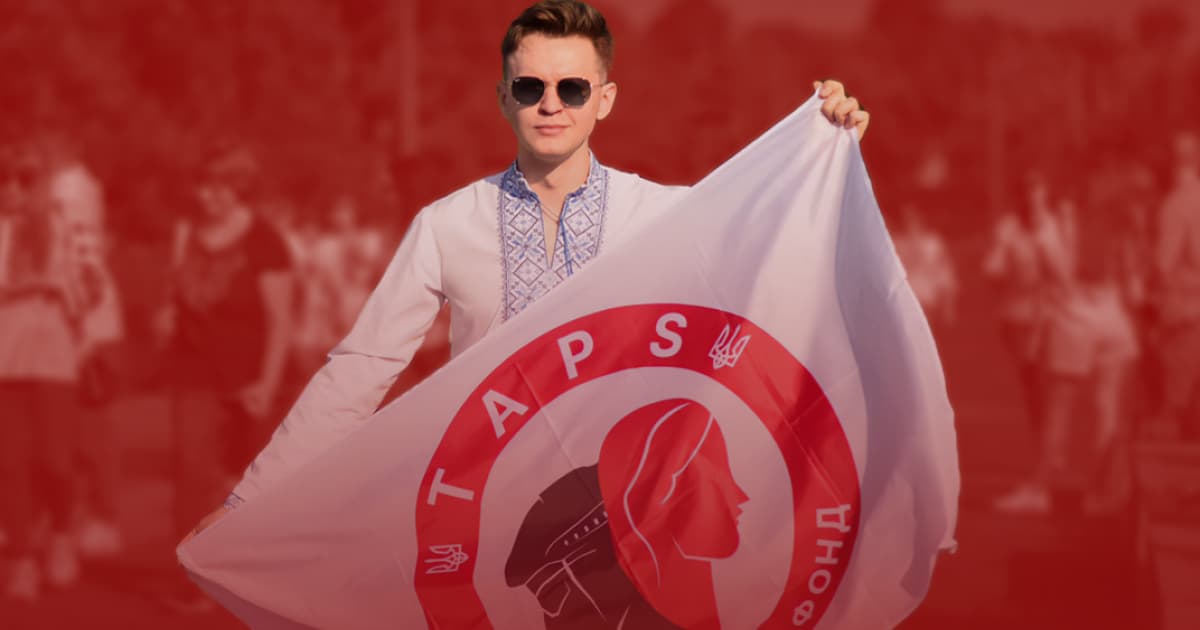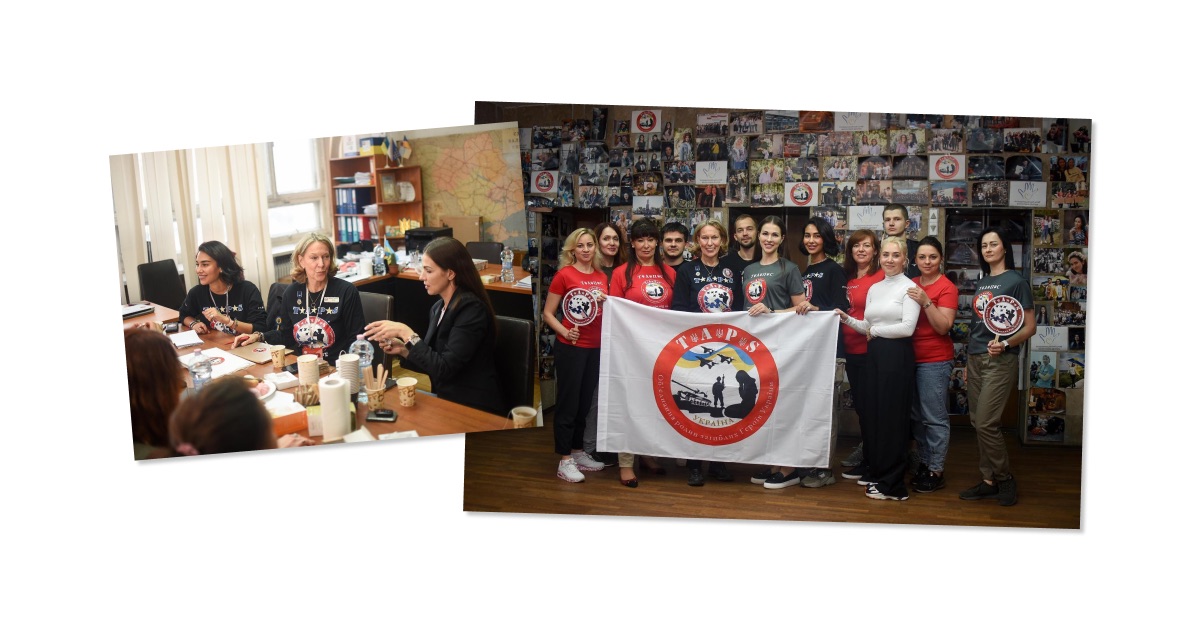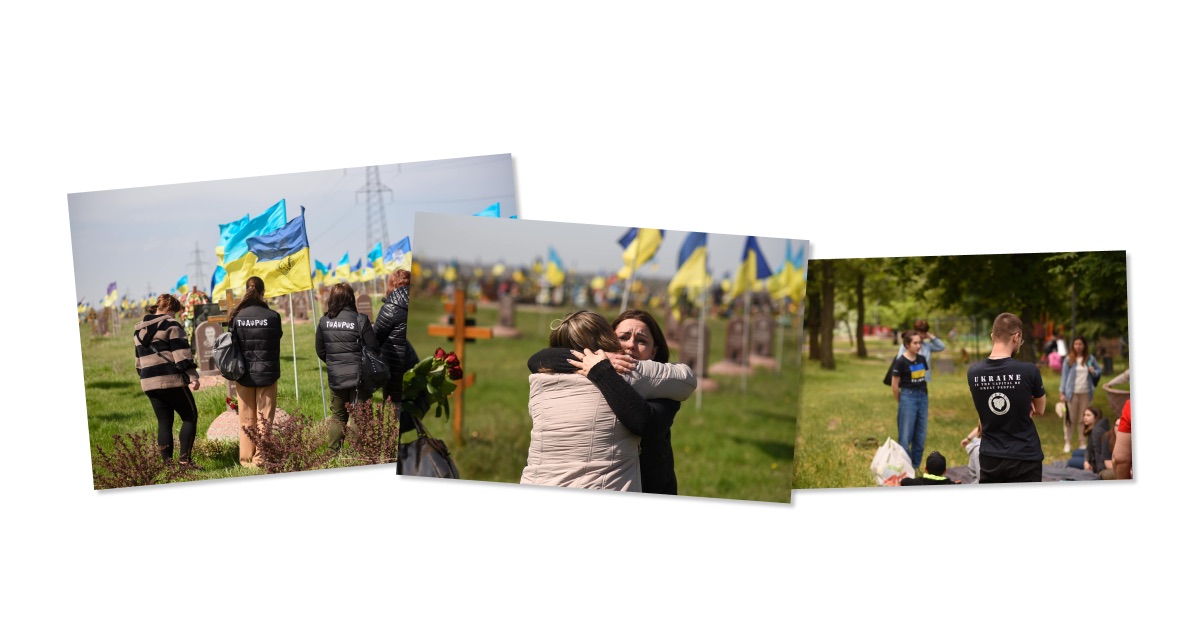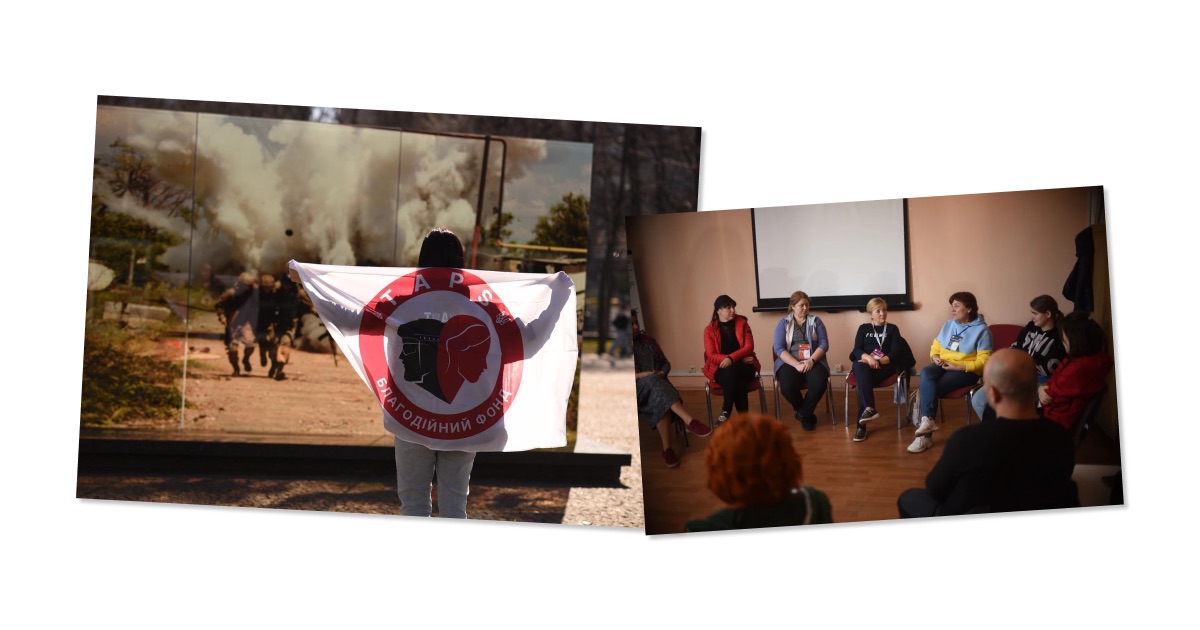"When you are alone with your loss, it is important to understand that you can rely on someone." Work of the TAPS Foundation for support of fallen soldiers' families

The TAPS Ukraine Charity Fund is part of TAPS International, an organisation founded in the United States to support the families of fallen soldiers. The organisation's main slogans are "One to one's own" and "Families must continue to live with the memory and love of the fallen," with an emphasis on the word "live."
In this article, we describe how the organisation helps to cope with the loss of loved ones and unites grieving families.
About TAPS
TAPS was established in 2018 as part of the organisation TAPS International. The main activity is to support the families of fallen soldiers.
"We have gained a lot of international experience. We studied how they work with the families of the fallen in Croatia and other countries where military operations took place. Yuliia Dmytrova (Chairwoman of the Board of the TAPS Charitable Foundation — ed.) met Bonnie Carroll (President and Founder of TAPS International — ed.). At the time, TAPS was working with more than 80,000 families of the dead. The US experience seemed to be the most suitable for adaptation in Ukraine. It is interesting because families help each other themselves," says Kateryna Chyzhyk, Co-founder and Project Manager of TAPS.

Support for families of fallen soldiers
The organisation focuses on the emotional state of the relatives. Psychologists have developed one of the main principles of the fund: "Families must continue to live with the memory and love of the fallen," with the main emphasis on the word "live."
Families find TAPS in different ways: through advertising, word of mouth, and in Dnipro, the organisation works closely with military commissariats.
Support begins as soon as the family is informed of the death of a soldier. Psychologists attend funerals and provide support for at least the first 40 days, which are usually the most difficult. Then — if necessary. We have a group chat where relatives can message if they need anything, says the co-founder of the foundation.
They work with parents, spouses, and children separately — the mothers of the deceased may have one need, while the widows may have another. For example, TAPS taught wives of fallen soldiers how to write CVs. There is a demand for this because many women were housewives, and after such a loss, they want to find themselves in a profession.
When you are alone with your loss, it is important to understand that you can rely on someone, says Kateryna Chyzhyk.
Mostly women seek help, but men are also provided with support: "We had a group where the victims' parents would go fishing. They did some exercises with our psychologist Oleh Chabanenko and learned that men can also scream and cry."
TAPS drew attention to the problems of communication between parents and children. Not all parents talk to their daughters and sons about the loss and their fathers. Sometimes mothers "continued to live in the cemetery" and forgot that they needed to raise their children, that they had also lost a loved one and needed support.
"We are trying to create a culture of seeking therapy. In 2014, it was difficult for families to say they needed help, and they closed themselves off. Back then, the country hadn't experienced what it went through after February 24, so relatives were less ready to receive psychological support," explains Chyzhyk.
Uniting families
"We have spent many years explaining that this is not a treatment, but support for one's condition, understanding that a person is experiencing a loss, that it is normal, that it is okay to cry, and that it is easier to cry in a circle of like-minded people," says the co-founder of the foundation.

TAPS has moved to the format of methodological recommendations and has scaled up its work with loss as much as possible. Since the start of the full-scale invasion, the number of families of fallen soldiers has increased so much that it is difficult to work with them individually. Therefore, wherever possible, they try to systematise and turn individual work into psycho-emotional work.
The needs of different families also vary, so TAPS tries to unite families so they can communicate with people who have experienced similar grief. This year, the foundation launched the TAPS Camp project. 30 children from families of fallen soldiers went to the Carpathians. The Boeing Company funded four trips, the first of which took place in March 2023. After the camp, the children continue to communicate and even come to each other's birthdays.
A camp for the wives of fallen soldiers will take place on July 10-17. The programme includes active recreation and communication with psychologists.
One to one's own
When one person with a similar experience helps another, they become an example and emotional support for families with similar stories. This is how TAPS chose the model of working with the victims' families. The Foundation is surveying to determine who and how can help the victims' families.
"Our psychologist, Olena Shylova, spent a year proving she was a military widow. Her husband died as part of the Right Sector, which was not registered in the Armed Forces or the National Guard. Her husband was killed in action, and Shylova had to go through the courts to get her status, so she understands what families of the fallen can go through," Chyzhyk says.
Cooperation with social workers
We did a big project to help social workers in Dnipro: we provided support for those who work with grief and the families of the victims, helping them understand how important their work is. They are just ordinary people who were not ready for such a volume of work, the Foundation says.
The social workers, who were sent to the training by the city council at TAPS' request, "sat for the first 2 hours and waited for it to end. Then, together with the psychologist, they began to discuss what they feel when the victims' families come to them. The Foundation received a lot of positive feedback and began discussing with the Ministry of Social Policy the possibility of expanding its activities to other regions.

How to support TAPS
"Firstly, talk about our work as much as possible. Sometimes families are in a state where they simply do not understand they need help. And we always need donations to implement projects. In 2022, we were unfocused — the needs at the front were much more critical, so we helped the military as much as possible. Now we are restructuring and returning to our core business. We will move from emergency work to project-based, structured, and systematic work," says Kateryna Chyzhyk, Co-founder and Project Manager of TAPS.
You can help the foundation financially by clicking the link in our stories.


